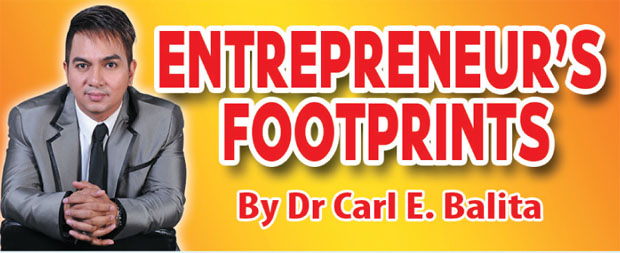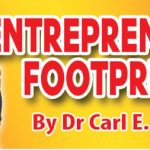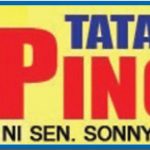COMPETENCIES refer to the functional knowledge, skills, attitude and values that we integrate as we journey through this life. These competencies are acquired in our journey as we survive and thrive. The so-called new normal will become a better normal if humans and humanity achieve new competencies and such are anchored on our ability to learn how to learn.
Success is the continuous (not static) journey (not a destination) towards the achievement of worthwhile pre-determined (not accidental) goals! Real entrepreneurial success is not achieved by reaching the peak. It is in the process entrepreneurs and the team took to get there. The greatest entrepreneurs see success as a product of continually improving, continuously honing the tools of the trade, continually raising the bar for himself, his product or service and the enterprise. In fact, when entrepreneurs are not improving, they are not succeeding.
Success comes from the person’s ability to learn and change throughout life. There is no doubt that since time immemorial, the prescription for success and happiness is continuous learning. Education is not a preparation for life. It IS life, as John Dewey puts it. Dewey’s philosophy is called instrumentalism, which proposes that truth is an instrument used by human beings to solve problems. And since problems change, so truth must also change. What is true today may not be true tomorrow. What held true prior to the CoViD-19 pandemic may not apply anymore post-CoViD-19. The competencies that made people survive and thrive in the past may not be sufficient for the new normal.
Beyond Literacy
The most literate today may be illiterate tomorrow. The entrepreneur needs to be literate in the new sense of the word for the new sense of the world. Literacy goes beyond the old three R’s namely Reading, wRiting and aRithmetic. Former Harvard President Derek Bok enumerated the new 3 R’s as Reasoning, Resilience and Responsibility. According to Gary Schepf education needs to implement the new three R’s of education which are Rigor, Relevance and Relationship. Author James Burns launched a book entitled The New 3 R’s of Education and enumerated them as Respect, Responsibility & Relationships. Other authors enumerate Religion, Respect and Responsibility. There can be more R’s in the dictionary that may make sense. Environmentalists, who send the greater alarm in climate change, will probably even demand the inclusion of Reduce, Reuse and Recycle.
Alvin Toffler, the author behind bestselling Future Shock, describes the literate for the 21st century as people who know how to learn, unlearn, and relearn. We need to learn, unlearn what we learned earlier so that we can accommodate new and more learning, and re-learn to adapt to the VUCA world, now and beyond the pandemic.
Entrepreneurs as Adult Learners
The quarantine allows alone introspective time to many. Technology makes available and accessible the learning resources and tools. The challenging times stimulates creativity and innovativeness as new lifestyle and behaviors emerge through this experience. But most learning, and development need to be intentional. This means that learning need not come by chance but by choice.
Entrepreneurs need to learn how adults learn not only for themselves but for their task to teach, mentor and coach people around. The entrepreneurs are leaders who can multiple themselves in others through teaching.
How do we learn as adults? Certainly, not the way children do! Pedagogy is for kids; andragogy is for adults. Adult learners are self-directed learners but they need to understand why they need to learn something. They have psychological needs that first have to be filled so that they can become capable of independent learning.
The motivation is internal and is centered and focused on the real world. The usefulness of the learning to life-situations is a major motivation for the adults’ interest to learn. Adults have a problem-centered orientation to learning. They prefer to learn as they solve problems. Hence, the needs for learning are determined by them. They set their own learning goal.
The adults’ readiness to learn is influenced by their need to apply a social role. Adults love to learn anything that will make them better in the roles that they perform. It is their experience that sets the parameters. They have a wealth of accumulated experiences, which may serve as references into learning something that makes sense in the world they live in and the life they live. In most cases, what they know about their own realities is far more specific and valid than those of external teachers.
The Adult Learning Cycle
Kolb provides for a framework into understanding adult learning. His work has been extensively used in creating programs and development curriculums for adults. Central to this framework is how we perceive and process our experiences. “How we think about things” and“how we do things” are essential toa better understanding of our need to learn. Since our experiences generate feelings and offer potentials for learning, they are important starting points of learning. But then again, how we think about the experience will determine the next step which in turn is highly dependent on how we do things. Our experience prompts our valuing skills. Our reflection engages us into thinking. We theorize and draw conclusions as parts of the process of making decisions. And we experiment even as we commit to act on our decisions.
We need to be consciously aware of how we perceive experiences to make sure that we take the necessary feeling, valuing and thinking processes that will enable us to decide and,eventually, act! Indeed, experience is the best teacher! But it is also the worst. We never liked a teacher who gives test first before the lesson. We prefer a teacher who gives the lessons first before the test. Experience gives the test first before the lessons – and many times we need to fail to learn the lesson. And our failures become the great teachers.
The mindfulness of our experiences and reflecting through them within the context of what we value and what matters to us allow us to embark on a more introspective journey towards learning and prosperity. Feeling though and thinking through the experience make it possible for the heart and the mind to interact towards a decision, not for the sake of deciding but for the sake of action. That is adult learning! Combining the heart and the mind in an experience so that decision and action may come together to effect change! Remember, the proof of learning is CHANGE!
Entrepreneurs should learn effectively. As an effective learner, one need to develop four different kinds of abilities:
1) The ability to involve self fully, openly, and without bias in a new experience;
2) The ability to reflect on and observe experiences from many perspective;
3) The ability to create concepts that integrate observations into logical and sound conclusion uniquely one’sown;
4) Ability to use these theories to make sound decision and solve problems
The new normal that we are talking about is not something imposed upon us. It is something we, by chance and by choice, are willing to change. Hence, willing to learn. The entrepreneur footprints are marks by what the entrepreneurs learned to learn.
Send feedback at [email protected]







Comments are closed.